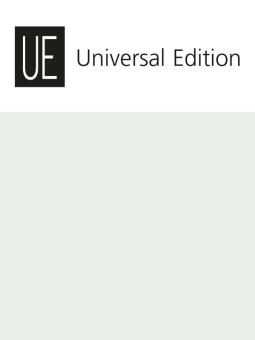Arvo Pärt
Fratres
Arvo Pärt
Fratres
- Compositor Arvo Pärt
-
Dificultad
- Editorial Universal Edition
- Nº de pedido UE17274
plazo de entrega 1-3 días laborables
IVA incluido.,
Más gastos de envío
No disponible en todos los países. Leer más
Descripción de la:
Fratres (original setting for violin and piano) was commissioned by the Salzburg Festival and premiered on August 17th, 1980 at that very place (violin: Gidon Kremer, piano: Elena Kremer).
Daniel Hope, internationally acclaimed violin soloist, about the edition: 'Fratres opened up my ears in a completely new way. Recently when I recorded it, I was extremely pleased about the edition by Universal Edition. A masterpiece needs an illustration that clearly depicts the composer's wishes, as it was done with this piece.'
Composed in Pärt's very own 'Tintinnabuli'-style, this piece allows many different settings because it is not bound to a specific tone color. 'The highest virtue of music, for me, lies outside of its mere sound. The particular timbre of an instrument is part of the music, but it is not the most important element. If it were, I would be surrendering to the essence of the music. Music must exist of itself ... two, three notes ... the essence must be there, independent of the instruments.'
(Arvo Pärt)
Daniel Hope, internationally acclaimed violin soloist, about the edition: 'Fratres opened up my ears in a completely new way. Recently when I recorded it, I was extremely pleased about the edition by Universal Edition. A masterpiece needs an illustration that clearly depicts the composer's wishes, as it was done with this piece.'
Composed in Pärt's very own 'Tintinnabuli'-style, this piece allows many different settings because it is not bound to a specific tone color. 'The highest virtue of music, for me, lies outside of its mere sound. The particular timbre of an instrument is part of the music, but it is not the most important element. If it were, I would be surrendering to the essence of the music. Music must exist of itself ... two, three notes ... the essence must be there, independent of the instruments.'
(Arvo Pärt)

